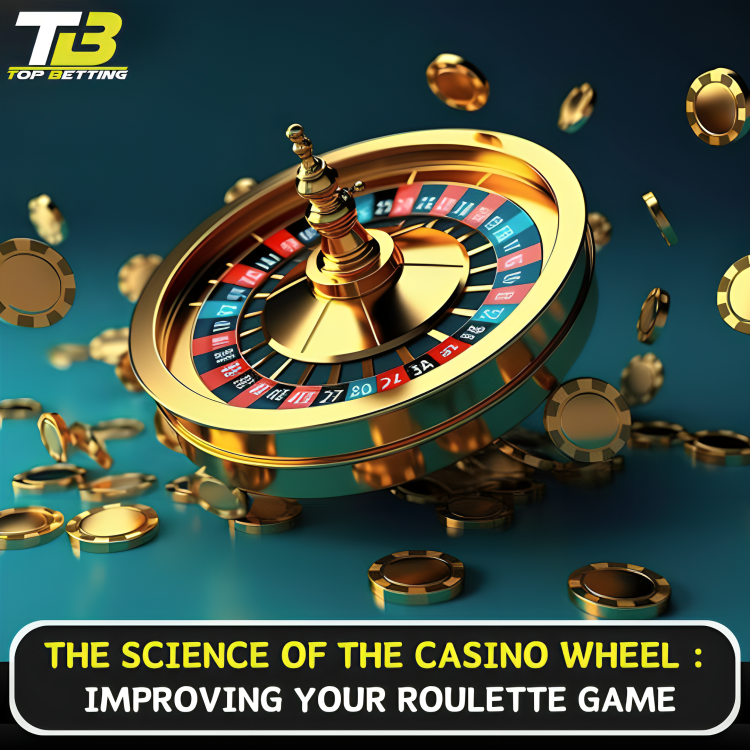
The Science of the Casino Wheel
The Mathematics behind Roulette
Roulette is a game that is deeply rooted in mathematics, and understanding the underlying principles can give you a significant advantage at the table. The roulette wheel is designed with 37 or 38 numbered slots, depending on the variant of the game. These numbers are arranged in a specific pattern, with the numbers alternating between red and black, and the 0 (or 0 and 00 in the case of American roulette) being colored green.
The probability of any particular number being spun is 1 in 37 or 1 in 38, depending on the variant. This means that the house edge, or the mathematical advantage the casino has over the player, is around 2.7% in European roulette and 5.26% in American roulette. While these odds may seem daunting, there are strategies and techniques that can help you minimize the house edge and increase your chances of winning.
One of the key mathematical concepts in roulette is the concept of probability. By understanding the probability of different outcomes, you can make more informed decisions about your bets. For example, the probability of a single number coming up is much lower than the probability of a color or even/odd bet. By focusing on these higher-probability bets, you can increase your chances of winning in the long run.
Another important mathematical concept in roulette is the concept of expected value. This refers to the average amount you can expect to win or lose on a particular bet. By understanding the expected value of different bets, you can make more informed decisions about where to place your chips. For example, a straight-up bet on a single number has a higher expected value than a bet on a column or dozen, but it also carries a higher risk.
Understanding the Different Types of Bets in Roulette
Roulette game offers a wide range of betting options, each with its own unique set of odds and payouts. Understanding these different bet types is crucial to developing a successful roulette strategy.
The most basic bet in roulette is the straight-up bet, where you place your chip on a single number. This bet has the highest payout, with a 35:1 ratio, but it also has the lowest probability of winning, with a 1 in 37 or 1 in 38 chance.
Another popular bet is the split bet, where you place your chip on the line between two adjacent numbers. This bet has a 17:1 payout ratio and a 2 in 37 or 2 in 38 chance of winning.
The street bet, where you place your chip on the line at the bottom of a row of three numbers, has a 11:1 payout ratio and a 3 in 37 or 3 in 38 chance of winning.
The corner bet, where you place your chip on the intersection of four adjacent numbers, has an 8:1 payout ratio and a 4 in 37 or 4 in 38 chance of winning.
The line bet, where you place your chip on the line between two rows of three numbers, has a 5:1 payout ratio and a 6 in 37 or 6 in 38 chance of winning.
In addition to these inside bets, there are also a variety of outside bets that offer lower payouts but higher probabilities of winning. These include bets on red or black, even or odd, and low (1-18) or high (19-36) numbers.
Understanding the different bet types and their associated odds and payouts is crucial to developing a successful roulette strategy. By focusing on the higher-probability bets and managing your bankroll effectively, you can increase your chances of walking away a winner.
Tips for Improving Your Roulette Game
Now that you have a solid understanding of the mathematics behind roulette, let’s explore some practical tips and strategies to help you improve your game.
One of the most important things to keep in mind is the concept of the house edge. As mentioned earlier, the house edge in roulette is around 2.7% for European roulette and 5.26% for American roulette. This means that over the long run, the casino will have a mathematical advantage over the player. However, this doesn’t mean that you can’t win in the short term.
One strategy to minimize the house edge is to focus on outside bets, such as red/black, even/odd, and low/high. These bets have a higher probability of winning, with a payout ratio of 1:1. While the payouts may be lower than some of the inside bets, the higher probability of winning can help you stretch your bankroll and stay in the game longer.
Another tip is to avoid the temptation of chasing losses. Roulette is a game of chance, and it’s easy to get caught up in the excitement of the moment and make impulsive bets in an attempt to recoup losses. This is a surefire way to quickly deplete your bankroll. Instead, stick to your predetermined betting strategy and be disciplined in your approach.

It’s also important to understand the concept of wheel bias and the role it can play in your roulette game. Wheel bias refers to the tendency of certain numbers or sections of the wheel to come up more often than others. This can be due to manufacturing defects, wear and tear, or even the way the wheel is spun. By identifying and exploiting these biases, you can gain a significant advantage over the casino.
Finally, it’s important to remember that roulette is a game of probability, not certainty. Even the best strategies and techniques can’t guarantee a win every time. The key is to approach the game with a balanced mindset, manage your bankroll effectively, and enjoy the thrill of the game without getting caught up in the pursuit of a big win.
The Importance of Bankroll Management in Roulette
Bankroll management is a critical aspect of any successful roulette strategy. It’s easy to get caught up in the excitement of the game and make impulsive bets that can quickly deplete your bankroll. However, by implementing effective bankroll management techniques, you can maximize your chances of walking away a winner.
One of the most important principles of bankroll management is to never bet more than you can afford to lose. Roulette is a game of chance, and even the most experienced players can experience losing streaks. By setting a predetermined budget and sticking to it, you can avoid the temptation to chase losses and ensure that you can continue to play another day.
Another important aspect of bankroll management is to diversify your bets. Instead of placing all of your chips on a single number or bet, consider spreading your bets across multiple options. This can help you mitigate the impact of a single losing bet and extend the life of your bankroll.
It’s also important to be mindful of the house edge and adjust your betting strategy accordingly. As mentioned earlier, the house edge in roulette is around 2.7% for European roulette and 5.26% for American roulette. By focusing on the higher-probability bets, such as outside bets, you can minimize the impact of the house edge and increase your chances of winning in the long run.
Common Misconceptions about Roulette Strategies
Despite the wealth of information and strategies available, there are still many common misconceptions about roulette that can lead to poor decision-making and ultimately, financial losses.
One of the most pervasive myths is the belief in the “hot” and “cold” numbers on the roulette wheel. Many players believe that certain numbers are “due” to come up, and they will focus their bets on these numbers in the hope of a big payout. However, the reality is that each spin of the roulette wheel is an independent event, and the probability of any number coming up is the same regardless of previous spins.
Another common misconception is the belief in the “Martingale” system, which involves doubling your bet after every loss in the hope of eventually winning and recouping your losses. While this system may work in the short term, it carries a significant risk of depleting your bankroll quickly, as the losses can quickly escalate to unmanageable levels.
Many players also believe that they can predict the outcome of a roulette spin by observing the wheel’s behavior or the way the ball is launched. While it’s true that there are some physical factors that can influence the outcome, the reality is that roulette is a game of chance, and the outcome is ultimately determined by the random nature of the wheel and ball.
Conclusion: Mastering the Science of the Casino Wheel
In conclusion, roulette is a game that is deeply rooted in science and mathematics, and by understanding the underlying principles, you can gain a significant advantage over the casino.

From the physics of the ball’s trajectory to the probabilities and expected values of different bets, there is a wealth of information that can be used to improve your roulette game. By focusing on higher-probability bets, managing your bankroll effectively, and avoiding common misconceptions about roulette strategies, you can minimize the house edge and increase your chances of walking away a winner.










